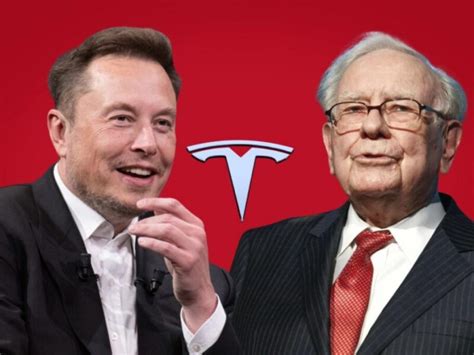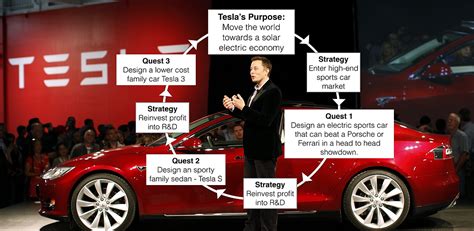
Elon Musk has voiced his support for Warren Buffett’s proposed solution to alleviate the United States’ fiscal challenges: raising taxes. Buffett, chairman and CEO of Berkshire Hathaway, suggests that a modest increase in taxes could significantly contribute to deficit reduction. Musk’s endorsement has amplified the conversation around this straightforward strategy, sparking debate among economists and policymakers.
Tesla CEO Elon Musk has thrown his weight behind Warren Buffett’s plan to tackle the U.S. budget deficit, advocating for a tax increase as a pragmatic solution. Buffett’s proposal, which he has articulated in various interviews and shareholder letters, involves a slight adjustment to existing tax rates that he believes could generate substantial revenue without stifling economic growth. The backing from Musk, a highly influential figure in the tech and business sectors, has reignited discussions about the feasibility and potential impact of such a measure. The proposal’s simplicity is its selling point, and the rationale behind it is its ability to generate revenue in a straightforward and efficient manner.
Buffett’s proposition centers on the idea that targeted tax adjustments, especially on high-income earners and corporations, could provide a considerable boost to government revenue. “I could end the deficit in five minutes,” Buffett stated in a CNBC interview, suggesting that a straightforward tax increase on the wealthiest Americans would greatly alleviate the government’s financial strain. This approach contrasts with more complex fiscal policies often debated in Washington, which involve extensive spending cuts or comprehensive tax reforms. The allure of Buffett’s plan lies in its directness; it is a simple, easily understandable mechanism for raising revenue.
Musk’s support for Buffett’s idea is significant, given his stature as a leading entrepreneur and innovator. Musk, who often shares his views on economic and policy matters via social media, highlighted the merit of Buffett’s approach in a recent post. While Musk has not detailed specific tax adjustments he would favor, his endorsement of Buffett’s concept suggests an agreement on the need for revenue-generating measures to address the growing national debt. Musk’s endorsement is particularly noteworthy given his own substantial tax liabilities, which he has addressed candidly in the past.
The U.S. national debt has steadily risen over the past several decades, driven by a combination of factors, including government spending, tax cuts, and economic downturns. The Congressional Budget Office (CBO) projects that the debt will continue to grow as a percentage of GDP in the coming years, raising concerns about long-term economic stability. In this context, proposals to address the deficit have become increasingly urgent.
Buffett’s tax increase proposal is rooted in his long-standing belief that the wealthiest Americans should contribute more to the nation’s tax base. He has often pointed out that the current tax system allows the ultra-rich to pay a lower effective tax rate than many middle-class Americans, a situation he deems unfair. Buffett’s advocacy for higher taxes on the wealthy is not new; he has been vocal about this issue for years, arguing that it is both economically sound and socially just.
Economists have offered varying perspectives on the potential impact of Buffett’s tax increase proposal. Supporters argue that higher taxes on the wealthy could help reduce income inequality, fund essential government programs, and stabilize the national debt. They point to historical data suggesting that higher top marginal tax rates have not necessarily hindered economic growth. On the other hand, critics contend that higher taxes could discourage investment, reduce economic activity, and potentially lead to tax avoidance strategies. They argue that tax cuts can stimulate economic growth by incentivizing investment and job creation.
The debate over tax policy is deeply intertwined with broader economic and political ideologies. Advocates of supply-side economics, for example, typically argue that tax cuts are the most effective way to promote economic growth. Conversely, proponents of demand-side economics often favor government spending and targeted tax increases to stimulate demand and reduce inequality. These competing perspectives shape the ongoing discussions about fiscal policy and the appropriate role of government in the economy.
The political feasibility of Buffett’s tax increase proposal remains uncertain. While there is growing public support for higher taxes on the wealthy, particularly among Democrats, Republicans have generally opposed tax increases, arguing that they can harm economic growth. Any significant tax reform would likely require bipartisan support in Congress, which can be challenging to achieve in the current political climate.
The details of implementing a tax increase, as proposed by Buffett, would also need to be carefully considered. Policymakers would need to determine the specific tax rates, income thresholds, and types of income to be targeted. They would also need to address potential loopholes and tax avoidance strategies to ensure that the tax increase generates the intended revenue.
Several specific tax policies could be considered as part of a broader effort to increase taxes on the wealthy. These include raising the top marginal income tax rate, increasing the capital gains tax rate, and strengthening the estate tax. Each of these policies has its own set of economic and political considerations.
Raising the top marginal income tax rate would directly increase the taxes paid by the highest-income earners. This policy has been implemented in the past, with top marginal rates reaching as high as 90% in the mid-20th century. Proponents argue that higher top rates can generate significant revenue without harming economic growth. Critics, however, contend that they can discourage work effort and investment.
Increasing the capital gains tax rate would affect the taxes paid on profits from the sale of assets, such as stocks and real estate. Currently, capital gains are taxed at a lower rate than ordinary income, a policy that is often criticized for benefiting the wealthy. Raising the capital gains tax rate could generate additional revenue and reduce income inequality. However, critics argue that it could discourage investment and reduce asset values.
Strengthening the estate tax, also known as the “death tax,” would increase the taxes paid on large inheritances. The estate tax has been a frequent target of Republican lawmakers, who argue that it can discourage family businesses from passing wealth to future generations. Proponents, however, argue that it is a fair way to tax wealth that has not been previously taxed and that it can help reduce wealth inequality.
The implementation of any tax increase would likely have both short-term and long-term effects on the economy. In the short term, higher taxes could reduce disposable income and potentially slow down economic growth. However, in the long term, the additional revenue could be used to fund investments in education, infrastructure, and other areas that can boost productivity and economic growth.
The debate over tax policy is ultimately a debate about values and priorities. It reflects different perspectives on the role of government, the importance of economic equality, and the best way to promote economic growth. Buffett’s proposal and Musk’s endorsement have injected a new element into this ongoing discussion, highlighting the potential for simple, revenue-focused solutions to address the nation’s fiscal challenges. The discourse that has followed has demonstrated varying views on tax reforms and economic stability, making it necessary to have more profound analyses to reach solutions.
The endorsement of Warren Buffett’s “5-minute deficit fix” by Elon Musk has not only galvanized public attention but also underscored the potential for a convergence of financial wisdom and entrepreneurial innovation in addressing the United States’ fiscal challenges. Buffett’s proposition, characterized by its straightforward approach to increasing taxes on the wealthiest Americans, has long been a topic of debate among economists and policymakers. However, with Musk, a prominent figure in technology and business, adding his support, the discussion has gained renewed momentum, prompting a deeper examination of its merits, implications, and potential implementation strategies.
Buffett’s rationale behind his proposal is rooted in his conviction that the current tax system disproportionately favors the ultra-rich, allowing them to pay a lower effective tax rate compared to middle-class citizens. He contends that targeted tax adjustments on high-income earners and corporations could generate substantial revenue without stifling economic growth. This approach stands in contrast to more intricate fiscal policies that often involve extensive spending cuts or comprehensive tax reforms.
Musk’s endorsement of Buffett’s plan is significant, given his influence in the business world. While Musk has not elaborated on specific tax adjustments he would favor, his support for Buffett’s concept suggests an alignment on the need for revenue-generating measures to address the mounting national debt. This endorsement is noteworthy, considering Musk’s own substantial tax obligations, which he has openly discussed in the past.
The United States’ national debt has been on a steady upward trajectory for several decades, driven by various factors, including government spending, tax cuts, and economic downturns. Projections from the Congressional Budget Office (CBO) indicate that the debt will continue to grow as a percentage of GDP in the coming years, raising concerns about long-term economic stability. In this context, proposals aimed at addressing the deficit have become increasingly critical.
Buffett’s tax increase proposal stems from his long-held belief that the wealthiest individuals should contribute more to the nation’s tax base. He has consistently argued that the current tax system allows the ultra-rich to pay a lower effective tax rate than many middle-class Americans, a situation he considers unjust. Buffett’s advocacy for higher taxes on the wealthy is not a recent phenomenon; he has been a vocal proponent of this issue for years, asserting that it is both economically sound and socially equitable.
Economists have offered diverse perspectives on the potential effects of Buffett’s tax increase proposal. Supporters argue that higher taxes on the wealthy could help mitigate income inequality, fund essential government programs, and stabilize the national debt. They cite historical data suggesting that higher top marginal tax rates have not necessarily impeded economic growth. Conversely, critics argue that higher taxes could discourage investment, reduce economic activity, and potentially lead to tax avoidance strategies. They suggest that tax cuts can stimulate economic growth by incentivizing investment and job creation.
The debate over tax policy is deeply intertwined with broader economic and political ideologies. Proponents of supply-side economics, for example, typically argue that tax cuts are the most effective way to foster economic growth. Conversely, proponents of demand-side economics often favor government spending and targeted tax increases to stimulate demand and reduce inequality. These competing viewpoints shape the ongoing discussions about fiscal policy and the appropriate role of government in the economy.
The political feasibility of Buffett’s tax increase proposal remains uncertain. While there is growing public support for higher taxes on the wealthy, particularly among Democrats, Republicans have generally opposed tax increases, arguing that they can harm economic growth. Any significant tax reform would likely require bipartisan support in Congress, which can be challenging to achieve in the current political climate.
The specifics of implementing a tax increase, as proposed by Buffett, would also require careful consideration. Policymakers would need to determine the precise tax rates, income thresholds, and types of income to be targeted. They would also need to address potential loopholes and tax avoidance strategies to ensure that the tax increase generates the intended revenue.
Several specific tax policies could be considered as part of a broader effort to increase taxes on the wealthy. These include raising the top marginal income tax rate, increasing the capital gains tax rate, and strengthening the estate tax. Each of these policies has its own set of economic and political considerations.
Raising the top marginal income tax rate would directly increase the taxes paid by the highest-income earners. This policy has been implemented in the past, with top marginal rates reaching as high as 90% in the mid-20th century. Proponents argue that higher top rates can generate significant revenue without harming economic growth. Critics, however, contend that they can discourage work effort and investment.
Increasing the capital gains tax rate would affect the taxes paid on profits from the sale of assets, such as stocks and real estate. Currently, capital gains are taxed at a lower rate than ordinary income, a policy that is often criticized for benefiting the wealthy. Raising the capital gains tax rate could generate additional revenue and reduce income inequality. However, critics argue that it could discourage investment and reduce asset values.
Strengthening the estate tax, also known as the “death tax,” would increase the taxes paid on large inheritances. The estate tax has been a frequent target of Republican lawmakers, who argue that it can discourage family businesses from passing wealth to future generations. Proponents, however, argue that it is a fair way to tax wealth that has not been previously taxed and that it can help reduce wealth inequality.
The implementation of any tax increase would likely have both short-term and long-term effects on the economy. In the short term, higher taxes could reduce disposable income and potentially slow down economic growth. However, in the long term, the additional revenue could be used to fund investments in education, infrastructure, and other areas that can boost productivity and economic growth.
The debate over tax policy is ultimately a debate about values and priorities. It reflects different perspectives on the role of government, the importance of economic equality, and the best way to promote economic growth. Buffett’s proposal and Musk’s endorsement have injected a new element into this ongoing discussion, highlighting the potential for simple, revenue-focused solutions to address the nation’s fiscal challenges.
The broader implications of this endorsement extend beyond the immediate fiscal debate. It underscores the increasing role of business leaders in shaping public policy and influencing public discourse. Musk’s engagement in economic and political issues reflects a growing trend among entrepreneurs and executives to use their platforms to advocate for specific policies and solutions. This trend has the potential to bring new perspectives and insights to the policy-making process, but it also raises questions about the appropriate role of business leaders in democratic governance.
The confluence of Buffett’s financial acumen and Musk’s entrepreneurial influence represents a unique opportunity to reframe the conversation about fiscal policy and explore innovative solutions to address the nation’s economic challenges. Whether their combined advocacy will translate into concrete policy changes remains to be seen, but their involvement has undoubtedly elevated the discussion and brought it to the forefront of public attention.
The discussion around the “5-minute deficit fix” is ongoing and is expected to evolve as more economists, policymakers, and business leaders weigh in on the proposal. The simplicity of Buffett’s idea, coupled with the endorsement of Musk, makes it an appealing solution. However, the ultimate success of any tax reform will depend on its ability to garner bipartisan support and address the complex economic and political considerations that shape fiscal policy.
The long-term implications of Musk’s backing for Buffett’s plan could reshape how business leaders engage with policy. If this approach gains traction, it could encourage more business leaders to openly advocate for specific policies and solutions to economic problems. This increased engagement could lead to a more informed and dynamic public discourse, but it also raises important questions about the influence of wealthy individuals and corporations on the democratic process.
Ultimately, the resolution of the U.S. fiscal challenges will require a comprehensive and multifaceted approach. Tax policy is just one piece of the puzzle, and it must be considered in conjunction with spending policies, regulatory reforms, and other economic measures. Buffett’s proposal and Musk’s endorsement have sparked a valuable conversation about the need for innovative solutions and the importance of engaging all stakeholders in the policy-making process.
The impact of Elon Musk’s endorsement of Warren Buffett’s tax proposal on the U.S. economy is subject to various interpretations and potential scenarios. On one hand, the endorsement could catalyze public support for tax reforms aimed at addressing the growing national debt. This could lead to increased government revenue, which could then be used to fund public services, reduce the deficit, or invest in infrastructure projects. Such investments could stimulate economic growth and improve the overall health of the economy.
On the other hand, the endorsement could also face significant opposition from those who argue that higher taxes on the wealthy could discourage investment and economic activity. Critics might contend that tax increases could lead to capital flight, reduced job creation, and a decline in overall economic productivity. These arguments often form the basis of supply-side economic theories, which advocate for lower taxes and reduced government regulation to stimulate economic growth.
The actual impact of any tax reform would depend on a variety of factors, including the specific details of the policy, the overall economic climate, and the response of businesses and individuals to the changes. If the tax increases are designed to be progressive and are accompanied by investments in public goods, they could potentially lead to a more equitable and sustainable economy. However, if the tax increases are perceived as excessive or are not accompanied by responsible fiscal management, they could potentially have negative consequences for economic growth.
The political dynamics surrounding the tax debate are also crucial to consider. In the United States, tax policy is often a highly partisan issue, with Democrats generally favoring higher taxes on the wealthy and corporations, and Republicans generally opposing such measures. Any significant tax reform would likely require bipartisan support in Congress, which can be difficult to achieve in the current political climate.
Furthermore, the global economic context could also play a role in shaping the impact of tax reforms. If the U.S. economy is facing a recession or economic slowdown, higher taxes could potentially exacerbate the downturn. Conversely, if the U.S. economy is growing strongly, higher taxes might be more easily absorbed without significantly impacting economic growth.
In summary, the potential impact of Elon Musk’s endorsement of Warren Buffett’s tax proposal on the U.S. economy is complex and multifaceted. It could lead to positive outcomes if the tax reforms are carefully designed and implemented in a way that promotes economic equity and sustainability. However, it could also face challenges if the reforms are perceived as excessive or if they are implemented in an unfavorable economic climate.
Frequently Asked Questions (FAQ):
1. What is Warren Buffett’s “5-minute deficit fix” proposal?
Warren Buffett’s “5-minute deficit fix” refers to his proposal to reduce the U.S. budget deficit by increasing taxes on the wealthiest Americans. He suggests that a modest adjustment to existing tax rates, particularly on high-income earners and corporations, could generate substantial revenue without significantly impacting economic growth. The core idea is a straightforward and efficient way to raise revenue and address the nation’s fiscal challenges. According to Buffett, this could be done quickly and easily.
2. Why is Elon Musk’s endorsement of Buffett’s plan significant?
Elon Musk’s endorsement is significant because he is a highly influential figure in the tech and business sectors. His support for Buffett’s proposal brings renewed attention to the idea and sparks further discussion about its feasibility and potential impact. Musk’s backing can influence public opinion and potentially sway policymakers to consider the proposal more seriously. As a prominent entrepreneur and innovator, his voice carries considerable weight.
3. What are the potential economic benefits of implementing Buffett’s proposal?
Supporters argue that higher taxes on the wealthy could help reduce income inequality, fund essential government programs (such as infrastructure, education, and healthcare), and stabilize the national debt. The increased revenue could also allow for investments in areas that boost productivity and long-term economic growth. Some historical data suggests that higher top marginal tax rates have not necessarily hindered economic growth.
4. What are the potential economic drawbacks or criticisms of Buffett’s proposal?
Critics contend that higher taxes could discourage investment, reduce economic activity, and potentially lead to tax avoidance strategies. Some argue that high taxes can lead to capital flight, reduced job creation, and a decline in overall economic productivity. These arguments are often rooted in supply-side economics, which emphasizes tax cuts and deregulation as drivers of economic growth.
5. What are some specific tax policies that could be implemented to increase taxes on the wealthy?
Several specific tax policies could be considered, including:
- Raising the top marginal income tax rate: This would directly increase the taxes paid by the highest-income earners.
- Increasing the capital gains tax rate: This would affect the taxes paid on profits from the sale of assets, such as stocks and real estate.
- Strengthening the estate tax: This would increase the taxes paid on large inheritances. Each of these policies has its own set of economic and political considerations that would need to be carefully evaluated.









